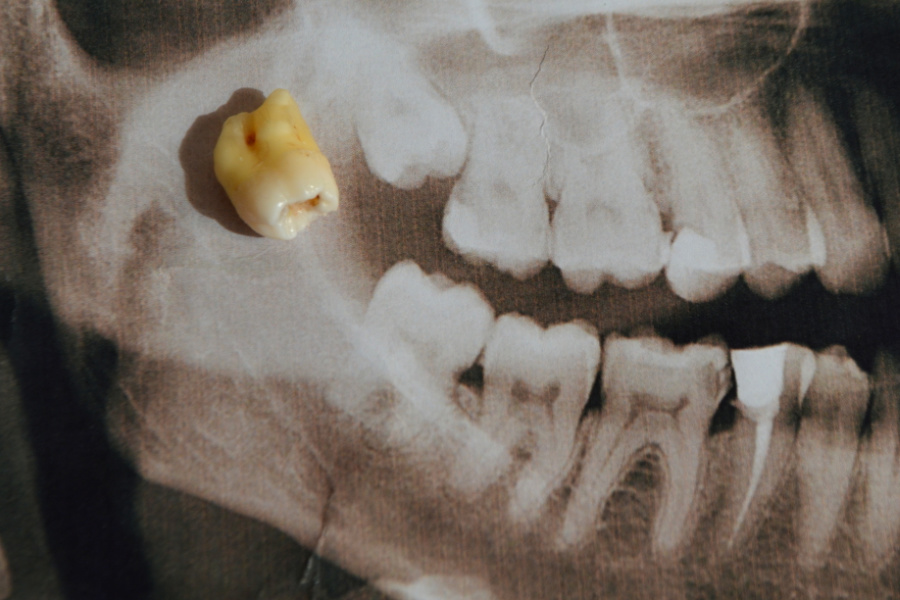
Wisdom teeth, or third molars, usually emerge in your late teens to early twenties. While many people have no trouble with them, others may experience issues such as discomfort or pain as they grow.
The arrival of wisdom teeth can be a painful experience for many people. As these third molars begin to emerge, they often bring discomfort and soreness. In this article, we’ll dive into the causes of wisdom tooth pain, how long it typically lasts, and effective ways to find relief. Whether you’re currently dealing with wisdom tooth pain or just want to understand what to expect, this guide will provide the answers you need.
Wisdom teeth, also known as third molars, are the last set of molars to develop and appear at the very back of your mouth. Most people have four wisdom teeth—two located in the upper jaw and two in the lower jaw. These teeth typically emerge during late adolescence or early adulthood, usually between the ages of 17 and 25, which is why they are often called “wisdom” teeth, symbolizing the transition to maturity.
From an evolutionary perspective, wisdom teeth are considered vestigial—remnants from our distant ancestors who had larger jaws and needed extra chewing power to break down a tougher, more fibrous diet consisting of raw plants and meats. Today, with softer diets and smaller jaws, wisdom teeth often no longer fit comfortably, which can lead to various dental issues.
Because of this, wisdom teeth sometimes cause overcrowding, misalignment, or impaction (where the tooth fails to fully emerge). While some people experience no problems and keep their wisdom teeth without issue, others may require removal to prevent pain, infection, or damage to adjacent teeth. Understanding the role and development of wisdom teeth can help you better manage any related concerns.

The pain associated with wisdom tooth growth can stem from several common factors:
The length of time you experience pain from growing wisdom teeth can vary widely between individuals. Typically, the discomfort may last anywhere from a few days to several weeks. Factors that affect how long the pain lasts include the tooth’s position, whether it is impacted, and each person’s unique pain sensitivity.
Thankfully, there are several effective ways to ease the discomfort caused by growing wisdom teeth. Here are some options to help manage the pain:
Home Remedies
Over-the-Counter Medications
Professional Dental Treatments
If home care and medications aren’t enough, it’s important to see a dentist. They may suggest:
If you’re experiencing pain from growing wisdom teeth, here are some effective ways to find relief:
Cold Compress
Applying a cold compress to the cheek near the painful area can help numb the discomfort and reduce swelling.
Saltwater Rinse
Rinsing your mouth gently with a warm saltwater solution (half a teaspoon of salt in eight ounces of water) can cleanse the area, reduce inflammation, and ease pain.
Clove Oil
Clove oil contains natural pain-relieving properties. Soak a cotton ball in clove oil and apply it to the sore spot for a few minutes to help calm the pain.
Tea Bags
Placing a moist black or green tea bag on the affected area can soothe discomfort and reduce inflammation thanks to the tannins in the tea.
Numbing Gels
Over-the-counter numbing gels or ointments can be applied to the gum near the wisdom tooth to temporarily dull the pain.
Dental Anesthesia
For severe pain or impacted wisdom teeth, a dentist may use local anesthesia to numb the area before performing any necessary treatment or extraction.
Wisdom teeth, the final set of molars, typically appear in your late teens or early twenties. Most people have four wisdom teeth, one in each corner of the mouth. Due to limited space, these teeth can become impacted—growing at awkward angles or getting stuck—causing pain, discomfort, and potential damage to nearby teeth and gums.
At Edgbaston Smile Clinic, we offer expert wisdom tooth removal led by Dr. Andrew Kalli, who holds a Master’s Degree in Oral Surgery from the Royal College of Surgeons of England. Procedures are usually done under local anesthesia and take just a few minutes. For those feeling anxious, twilight sedation by a Consultant Anaesthetist is also available.
The extraction may involve gently loosening the tooth, sometimes making a small gum incision or sectioning the tooth for easier removal. Post-procedure swelling, bruising, and discomfort are common but typically improve within a few days.
Cost: Wisdom tooth extraction costs around £650, with additional fees if sedation is used. General tooth extractions vary in price depending on complexity, typically starting from £395.
Conveniently located with free parking and easy public transport access, Edgbaston Smile Clinic combines expert care with a comfortable environment to ensure the best experience for your wisdom tooth removal.
Can wisdom tooth growing pain be prevented?
While wisdom tooth pain can’t be completely prevented, maintaining good oral hygiene and scheduling regular dental checkups can help catch potential problems early.
Are all wisdom teeth painful when they grow?
Not everyone feels pain when wisdom teeth emerge. If there’s enough space in the jaw, wisdom teeth can come through without causing discomfort.
How can I reduce wisdom tooth pain at home?
Home remedies like saltwater rinses, cold compresses, and applying tea bags can offer temporary relief. However, it’s important to see a dentist for a proper assessment.
What is the recovery time after wisdom tooth extraction?
Recovery varies depending on the extraction’s complexity and individual healing. Initial healing usually takes about a week, while full recovery can take several weeks.
Can I drive home after having my wisdom teeth removed?
It’s recommended to have someone accompany you and drive you home, especially if you’ve had sedation or anesthesia, as these can affect your ability to drive safely. For IV sedation, a responsible adult must be with you, and you should avoid operating machinery for 24 hours after the procedure.


